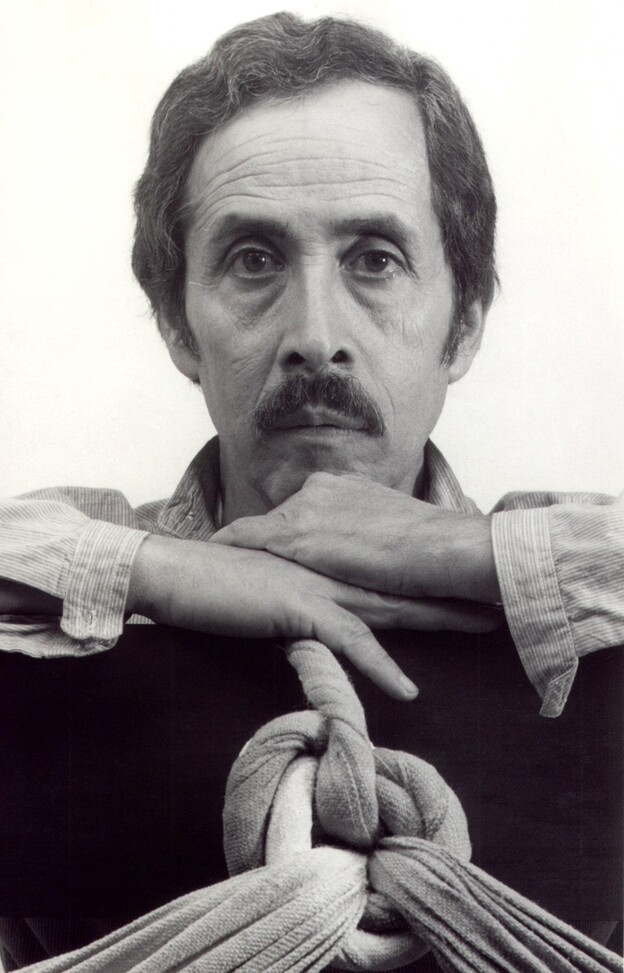Toward a Poetry and Poetics of the Americas (28)
Three Poems by Jorge Eduardo Eielson (Peru, 1924–2006) with commentaries

Translations from Spanish by David Shook
from 4 SEASONS
take this rectangle of paper in spring at a temperature of 17 degrees over zero and read it calmly
take this rectangle of paper in summer at a temperature of 40 degrees in the shade and fan yourself hard
take this rectangle of paper in fall at a temperature of 12 degrees over zero and write a poem
take this rectangle of paper in winter at 7 degrees below zero and burn it in the chimney
MUTILATED POEM (1949)
you appear………………………………………….
…………………………………………….…and disappear
…………………water shouting like obelisks
signaling the end of…………………………………………..
………………………………………..abysses
……………..lake
of disappeared species………………sand……………….
………………………………………………………...…last line
of fire……………………………………..
……………………
……………………………………………
and far away…………………………………………….just into view
…………………….the hungry wolf and the eclipse pass by
you appear……………………….
………………………………………..and disappear
igneous magnitude……………..
……………………………….. ………………..
from ROOM IN ROME
Alongside the Tiber, Putrefaction Twinkles Gloriously
here i am gathering
words again
words still
lines arranged single file
that brilliantly announce
the nauseating demise
of love
with exquisite fluorescence
thousands and thousands
of words written
in a water-closet
while yellow
briefs and stockings hang
from the flaming sky
of rome
how can i write
and write calmly
in the shade
of an impassive cupola
of a smiling
statue
and not wind up screaming
through the hideous neighborhoods
of rome
and lick a drunkard’s sores
disfigure my face
with broken bottles
and then sleep on the sidewalk
in the warm excrement
of a streetwalker or a beggar
i could fill pages
and even worse pages
tell heinous stories
speak despicable things
that I have never known
my shame is just a cloak
of words
a delicate veil of gold
that covers me every day
without pity
but if one day
one instant by the tiber
without a sound
or a whistle
or a cloud
or even a fly
at the bank of the river
with just
a cigarette
a match
and a chair
in so much summer
a sob rises up inside me
oh wonder!
like a mountain
or a mosquito that appears
each century at the zenith
that day
i swear to you
i will hurl the entire universe
into the basket
love will be reborn
between my parched lips
and in these sleeping lines
that will no longer be lines
but gunshots
COMMENTARY
source: (1 and 2) Jorge Eduardo Eielson, Birdwatching: The Visual Poems, trans. David Shook (Suxinenepihli Editions, 2015). (3) Jorge Eduardo Eielson, Room in Rome, trans. David Shook (Cardboard House Press, 2019).
where does the ma/n want to go with his cane that / breaks always bre/aks on turning the cor/ner / lead limbs before stairs / that rise daily / from so fragile an egg / and return to the egg / so fragile (Jorge Eduardo Eielson, “Valle Giuglia,” trans. David Shook).
(1) Writes Peruvian novelist Mario Vargas Llosa: “[Jorge Eduardo Eielson had] an open, curious and voracious spirit that would lead him, not content with cultivating a single genre, to jump from poetry to painting, theater, novel, events (he called them ‘performances’ and ‘actions’), to installation works and even to the circus (he said to Martha Canfield — very seriously — that he considered himself an ‘acrobat’ and ‘a clown’). He was interested in everything: archeology, science, religions, and, since the late 1950s, principally in Zen Buddhism. He participated in some way in all the post-war intellectual and artistic European trends but he never belonged to any group or sect, always defending his independence and isolation, and preserving, even in the most exhibitionist periods of his career (like when he ‘placed’ invisible poems on spaceships or on public monuments) a discreet and secret distance from what he did. … Eielson showed throughout his life an indifference to success and a tough seriousness in everything that he undertook as an artist, even in those humorous taunts. His contempt for fame was such that — for many years — his poetry was almost impossible to find and read, for lack of accessible editions.” (trans. Javier Taboada).
(2) “Room in Rome counterposes the temporal and spatial expansiveness of Rome with a transient, walled-in room. It is from this knotted perspective that Eielson … rearranges coordinates of time, space, and language, blurring the dividing lines between the Roman/the Peruvian, the ancient/the contemporary, the national/the personal, the awe-inspiring/the agonizing. Indeed, the metaphor of the knot permeates readings of Eielson’s written poetry, drawing a parallel to the poet’s quipus of the late 1950s–installations of knotted fabrics that reimagined the ancient Andean knot-based information system.” (Olivia Lot, “Slipknots: Jorge Eduardo Eielson’s Room in Rome,” Reading in Translation, Feb 3, 2020).
(3) As originally published, each line of “4 Seasons” appears on a separate page; to indicate that, our edition uses long vertical spaces.
N.B. A biographical note by David Shook: “Jorge Eduardo Eielson (1924–2006) was born in Lima, Peru. As a high school student he was taught by renowned novelist and anthropologist José María Arguedas, who influenced his interest in the Pre-Columbian precedents of conceptual art. In 1945 Eielson won Peru’s National Poetry Prize, before moving to Italy in 1948, where he lived until his death in 2006. In addition to his work as a poet, essayist, and novelist, Eielson was a highly lauded painter and sculptor who showed his work internationally.”
Poems and poetics